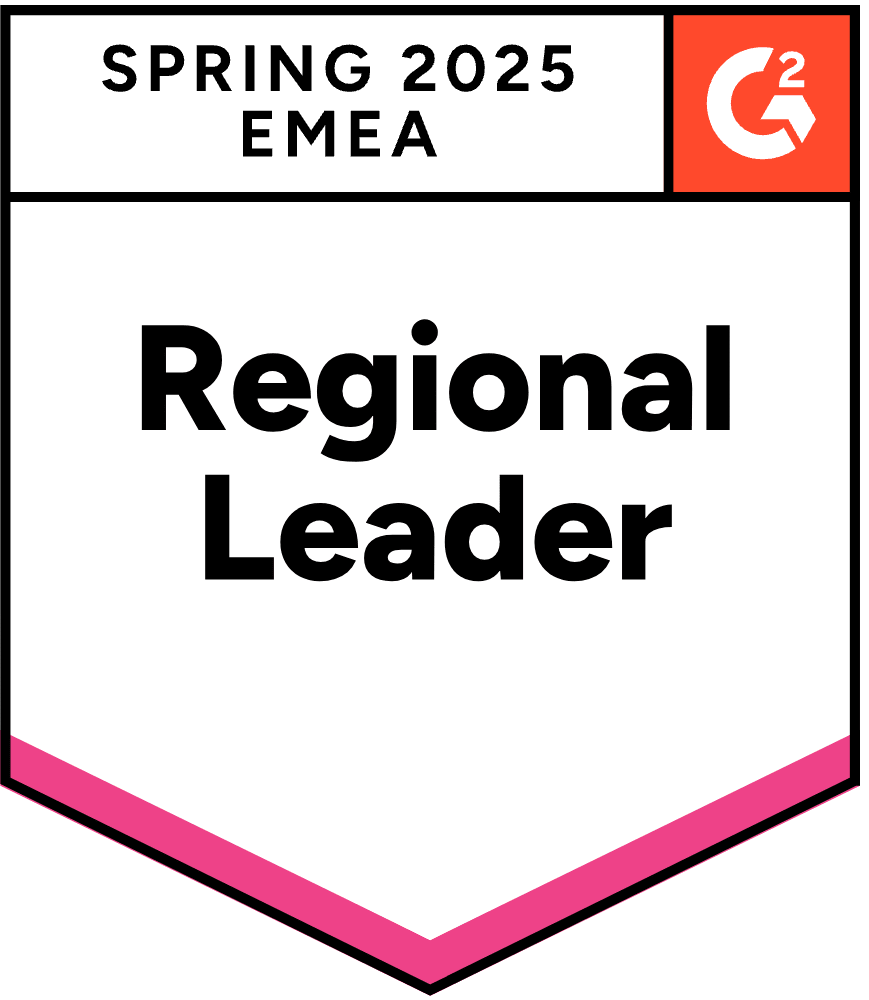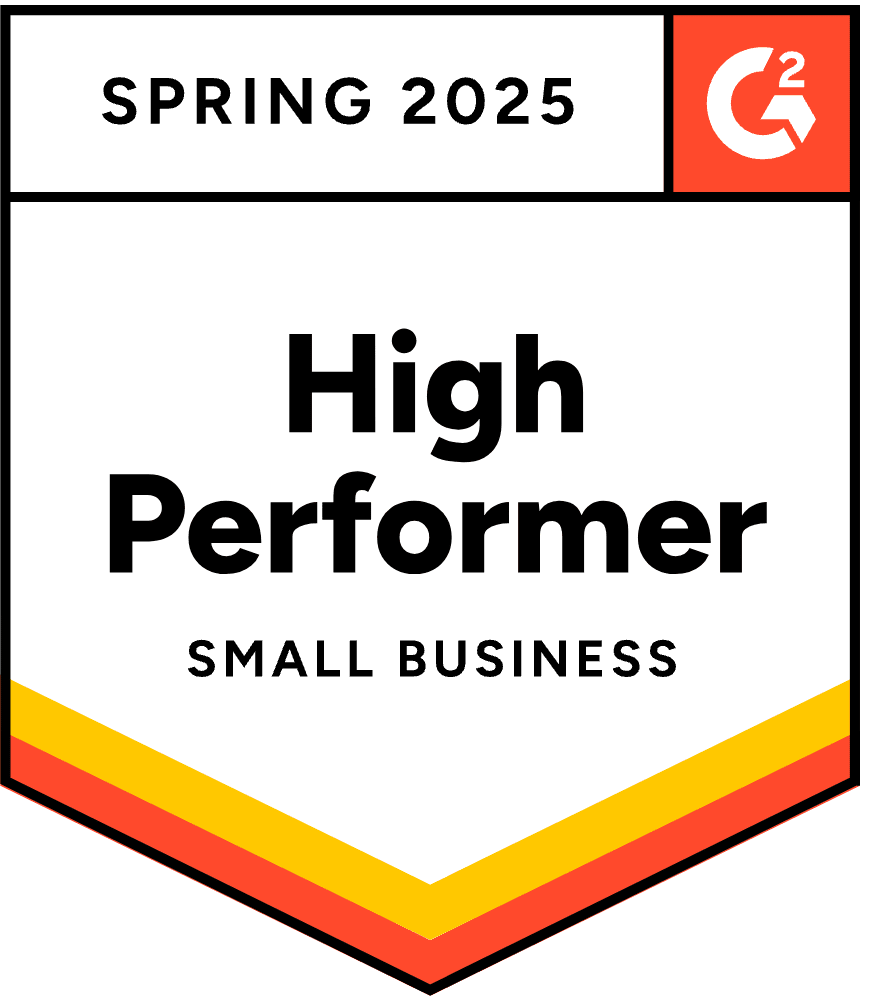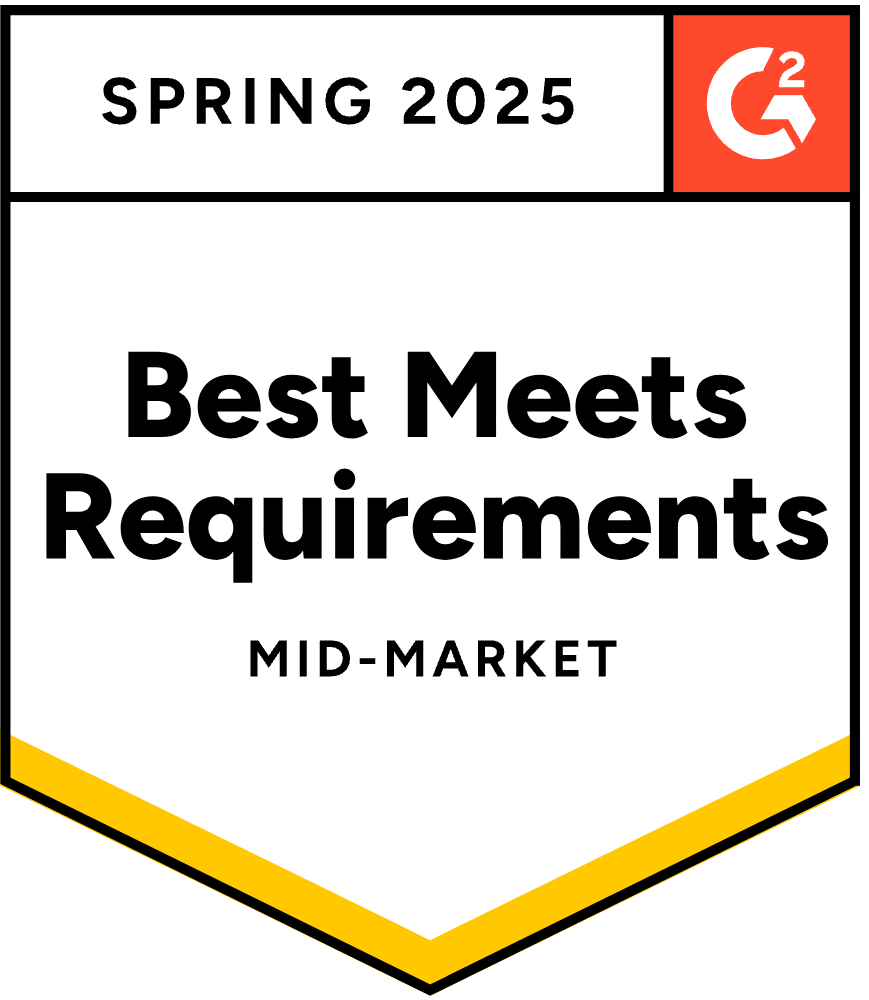- Blog
- Personalization Results: Case Studies of Getting Personalization Right
Personalization Results: Case Studies of Getting Personalization Right
Table of Contents
Whether you run a large or small-scale business, personalized marketing is key. If your visitors are regularly leaving your site without making a purchase, then it’s high time you adopted effective personalization tactics.
Studies have proven over and over again that personalization can skyrocket conversion rates, which means that your marketing efforts are incomplete without it.
In this article, you’ll learn from leading brands and their successful personalization strategies.
Get ready to revolutionize your marketing and give your sales a serious boost!
Why is personalized marketing a must-have strategy?
Imagine you’re having a birthday party. Your friends might bring you gifts that they know you’ll like, or maybe they’ll make you your favorite cake. They do this because they know you well and they want to make you feel special.
But how would you feel if you received a bunch of non-personal gifts that could have been given to anyone? Pretty disappointed, right?
It’s the same with your customers—they expect brands to provide personalized experiences that make them feel valued and understood.
If a website fails to provide a personalized experience, customers may feel like the brand hasn’t bothered to consider their interests, negatively impacting customer satisfaction.
When you personalize your website for visitors by using the information you know about them, you’re not only improving their on-site experience, you’re also making them feel like you really understand them and care about their interests.
Personalized experiences go way beyond personalized subject lines and personalized email marketing. Nowadays, ecommerce personalization statistics show that consumers expect brands to provide personally relevant branded content and individualized email campaign messaging based on their purchase history and preferences.
By creating a documented personalization strategy that’s aligned with customer experience, businesses can increase their conversion rates and revenue while also decreasing their customer acquisition costs.
Personalization efforts can also involve providing personalized service to customers, ensuring they feel valued and appreciated. It’s not just about increasing sales, but also building long-lasting relationships with customers.
This approach not only drives sales but also fosters customer loyalty by making customers feel understood and valued.
All these things can help you create a competitive advantage that sets you apart.
Personalization statistics
Recent research indicates that personalization is a vital factor in driving customer engagement and loyalty:
- 91% of consumers have expressed willingness to purchase from brands that can remember their preferences and offer tailored recommendations.
- 74% of Gen Zers are interested in personalized products (vs. 67% of Millennials, 61% of Gen Xers, and 57% of Baby Boomers).
- Consumers are also willing to share their data for the benefit of personalized experiences, with 83% of them expressing such an inclination.
- In the ecommerce space, adopting a personalization strategy has become a game-changer, with 65% of online stores reporting an increase in conversion rates.
Now, let’s dive into some real-world examples of brands that have nailed personalization and explore the tangible results of getting it right.
Personalization case studies from ecommerce stores
You’d be surprised what personalization can do to your bottom line! Here are some case studies that show the power of personalization in real businesses:
1. Kiss My Keto decreased their cart abandonment rate by 20%
Kiss My Keto is an online store that offers a variety of low-carb and high-fat products for people who follow a ketogenic diet. However, the team noticed that many visitors were leaving the website without making a purchase.
To tackle this issue, Kiss My Keto implemented a series of campaigns that targeted visitors who were browsing the website but didn’t add items to their carts and visitors that abandoned their carts before completing a purchase.
The first campaign was a discount popup that appeared on exit intent for visitors who browsed the product pages without adding anything to their cart:
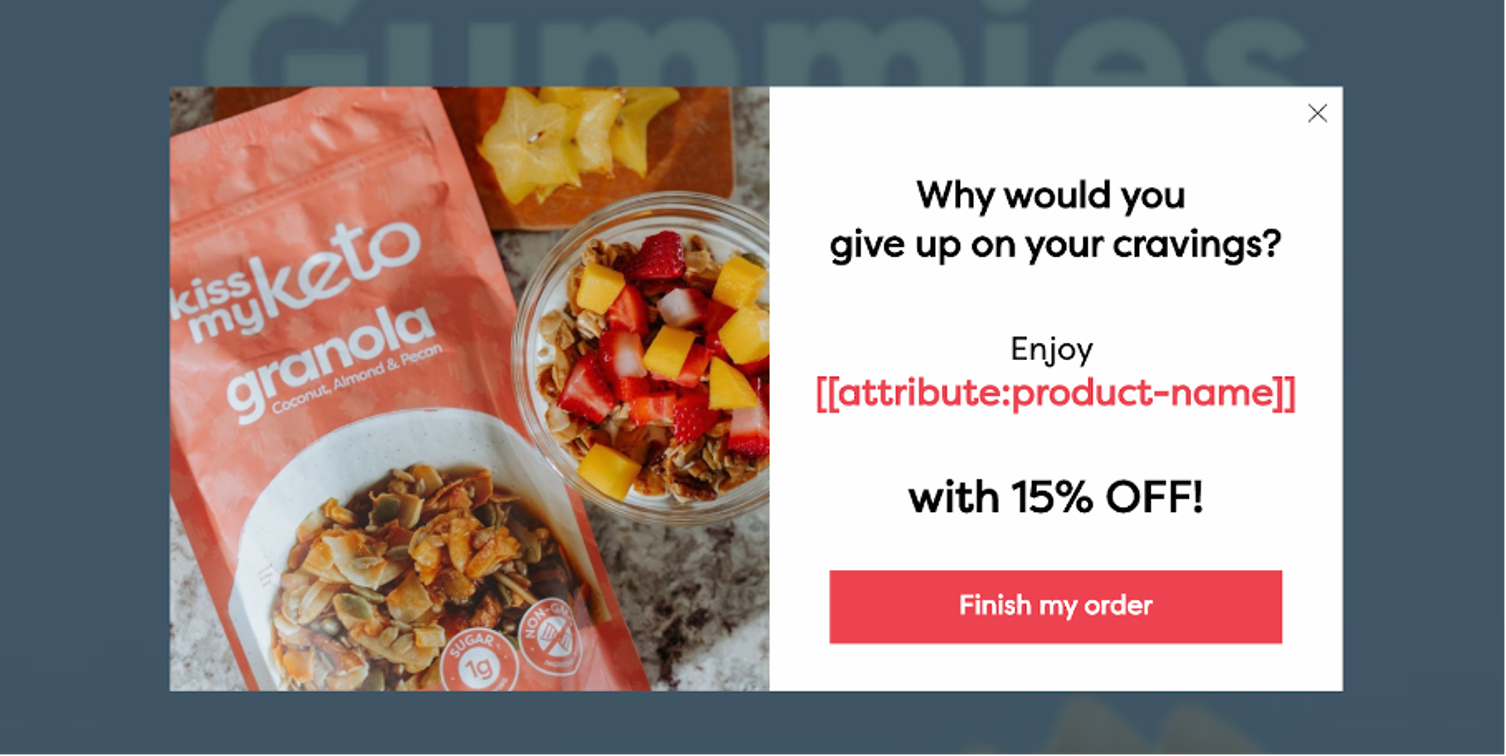
The campaign offered a 15% discount and used the product name the visitor was browsing to personalize the copy, making the popup feel much more relevant.
The popup was presented in multiple steps: they only asked for an email address on the second page, and the coupon code was displayed on the third page.
This campaign had an 8.67% conversion rate.
To save cart abandoners, the team also launched a cart abandonment popup that targeted visitors who had a high level of engagement but needed a final push to complete their purchase:
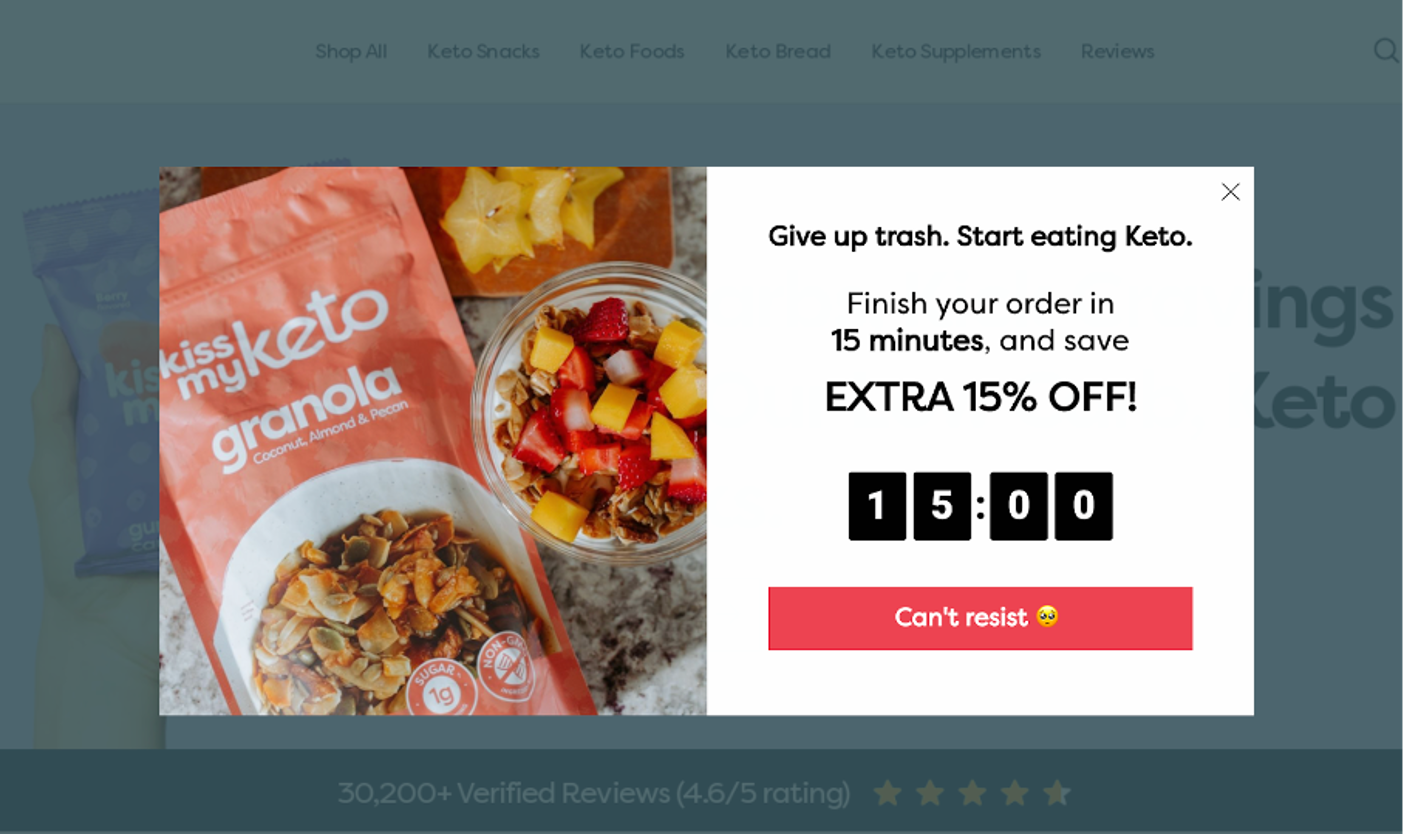
The team sent abandoning visitors a final 15% off and used a countdown timer to increase the fear of missing out (FOMO). The campaign was a huge success, with an impressive 15.05% conversion rate.
Finally, they launched a coupon code reminder campaign. This campaign was a useful reminder for visitors to use their discounts:
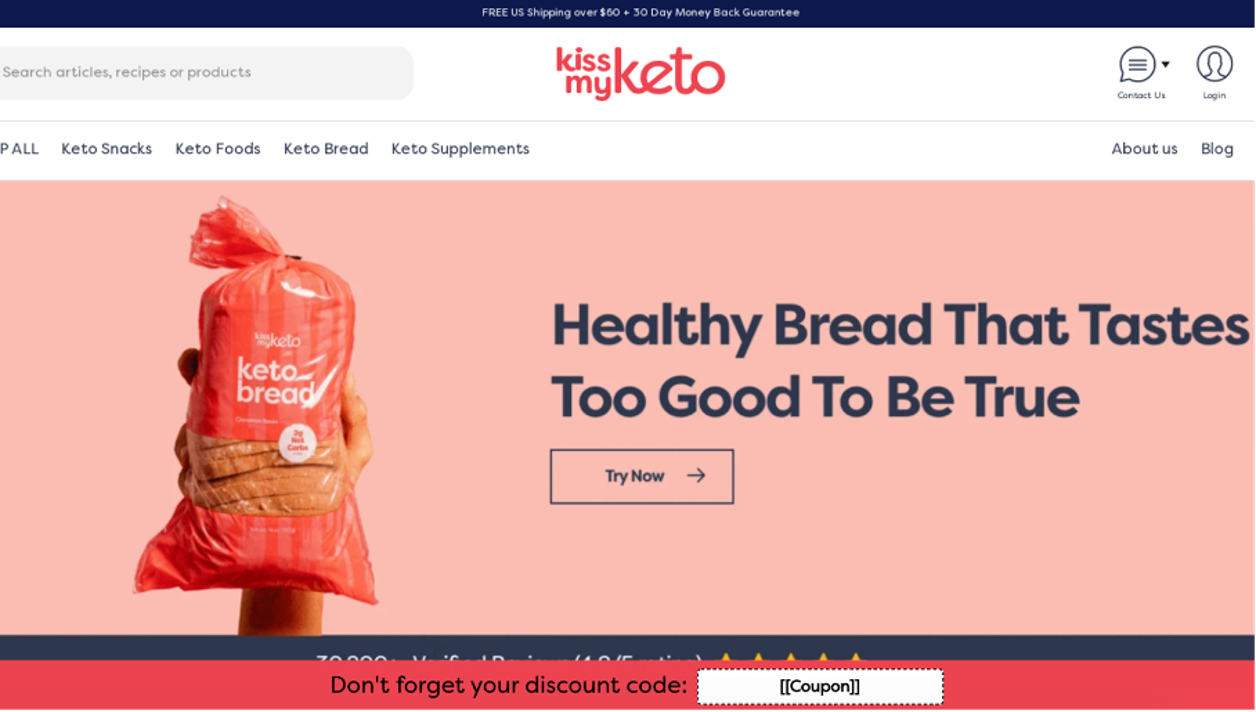
Together, these campaigns decreased Kiss My Keto’s cart abandonment rate by 20%.
The success of these examples from the Kiss My Keto team proves that targeted, relevant campaigns can significantly impact a website’s conversion rate.
2. Vegetology doubled their signup conversion rate and increased their ecommerce conversion rate by 21%
Vegetology, a DTC brand, was struggling to improve its website’s conversion rate. They decided to work with the OptiMonk team to optimize their website and personalize the customer journey.
By implementing various campaigns, Vegetology was able to double its signup conversion rate and increase its ecommerce conversion rate by 21%.
The OptiMonk team focused on improving Vegetology’s newsletter sign-up message:
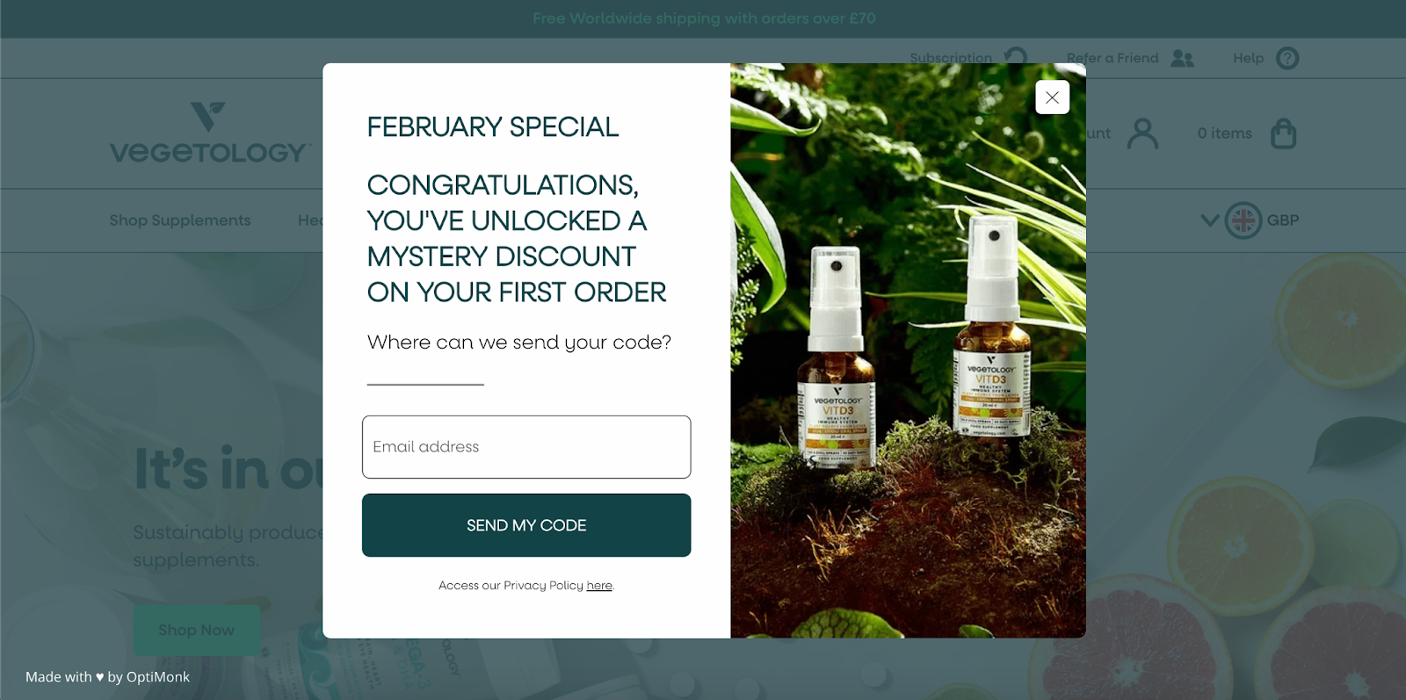
They promoted a “mystery discount” instead of the generic 10% discount, which added an element of excitement to the offer. They also used OptiMonk’s Current Month Smart Tag feature (“February Special”) to add some urgency to the offer.
This resulted in a 13.8% signup rate and a 21% increase in their ecommerce conversion rate.
The OptiMonk team also created a personalized welcome message for returning visitors. This message promoted a new product bundle with a special discount, and it had a14.59% click-through rate:
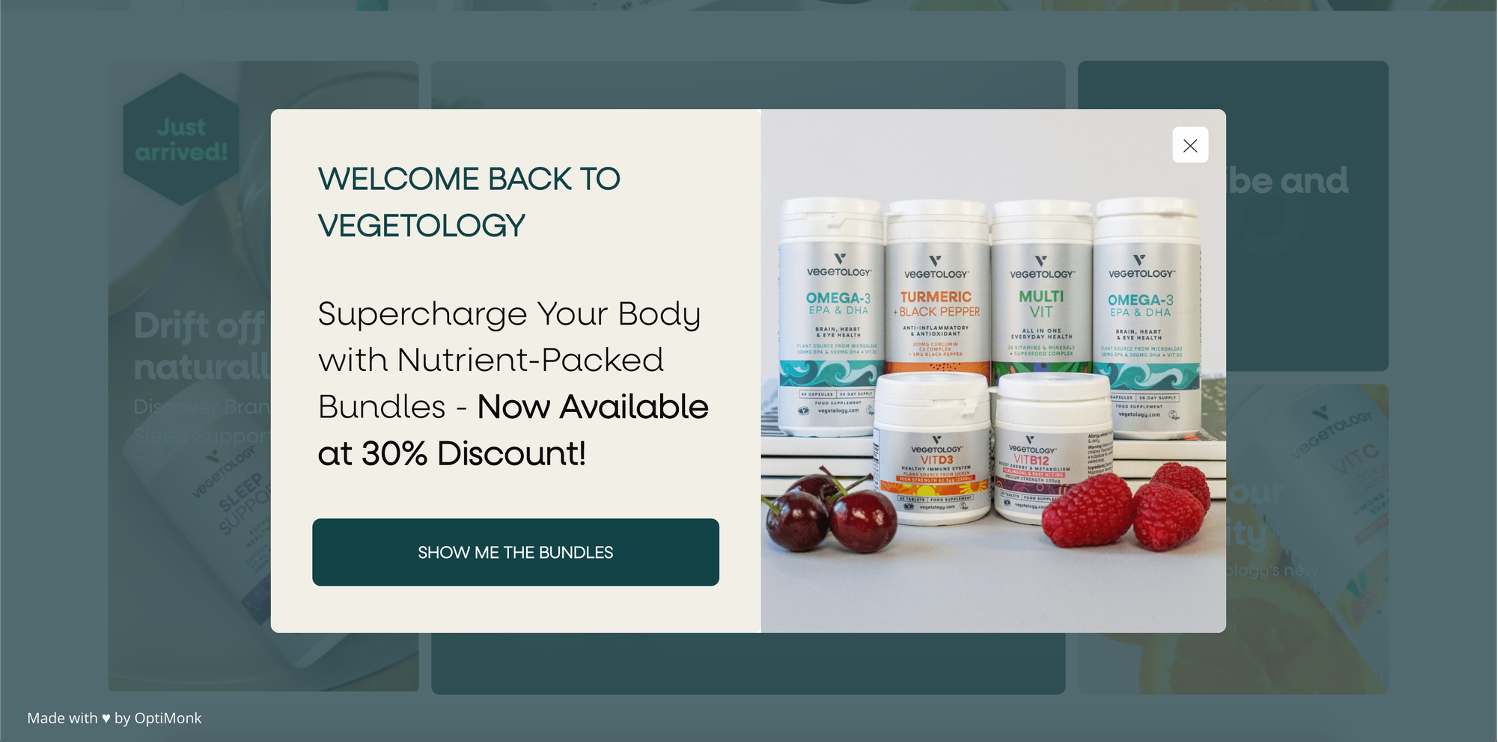
By creating a personalized experience for returning visitors, Vegetology was able to achieve a significant increase in engagement and sales.
3. Modelesdebusinessplan increased organic conversions by 64%
Modèles de business plan is an online platform that provides business and financial plan templates for over 300 industries.
The company’s primary source of customer acquisition is through organic traffic that arrives on their blog, which contains almost 3,000 posts covering various industries. However, it was a challenge to convert the traffic into paying customers since their target audience is incredibly diverse.
To solve this problem, Modèles de business plan teamed up with OptiMonk to create personalized campaigns for their visitors:
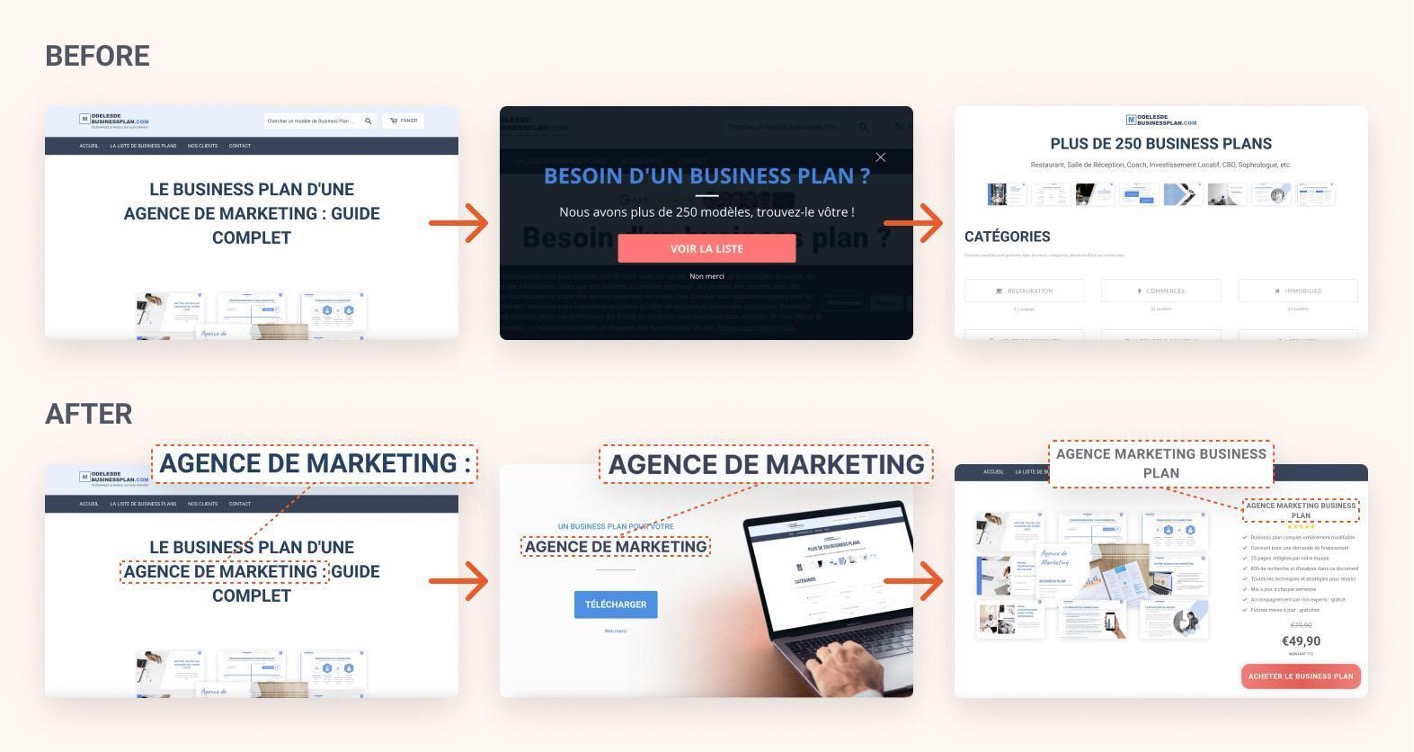
OptiMonk utilized the Custom Variables and Smart Tags features to create personalized messages for every visitor based on the article they were reading.
These personalized campaigns were designed to help visitors find the most relevant business plan templates and make a purchase. By personalizing the messages and tailoring them to each visitor’s interests, Modèles de business plan significantly increased its organic conversion rate.
The campaign resulted in a 14.46% click-through rate, which was a 64% increase compared to the non-personalized version.
4. ParfumeLab increased returning visitor sales by 19% with targeted reminders
ParfumeLab, an ecommerce store specializing in artisanal fragrances, implemented a Browsing Reminder campaign to enhance the experience of returning visitors.
The goal of this campaign was straightforward yet impactful: help returning visitors seamlessly pick up where they left off, ensuring a personalized and enjoyable customer journey.
When a visitor returned to the site, they were greeted with a friendly “Welcome back” message which also included a personalized reminder of the products the visitor had previously viewed.
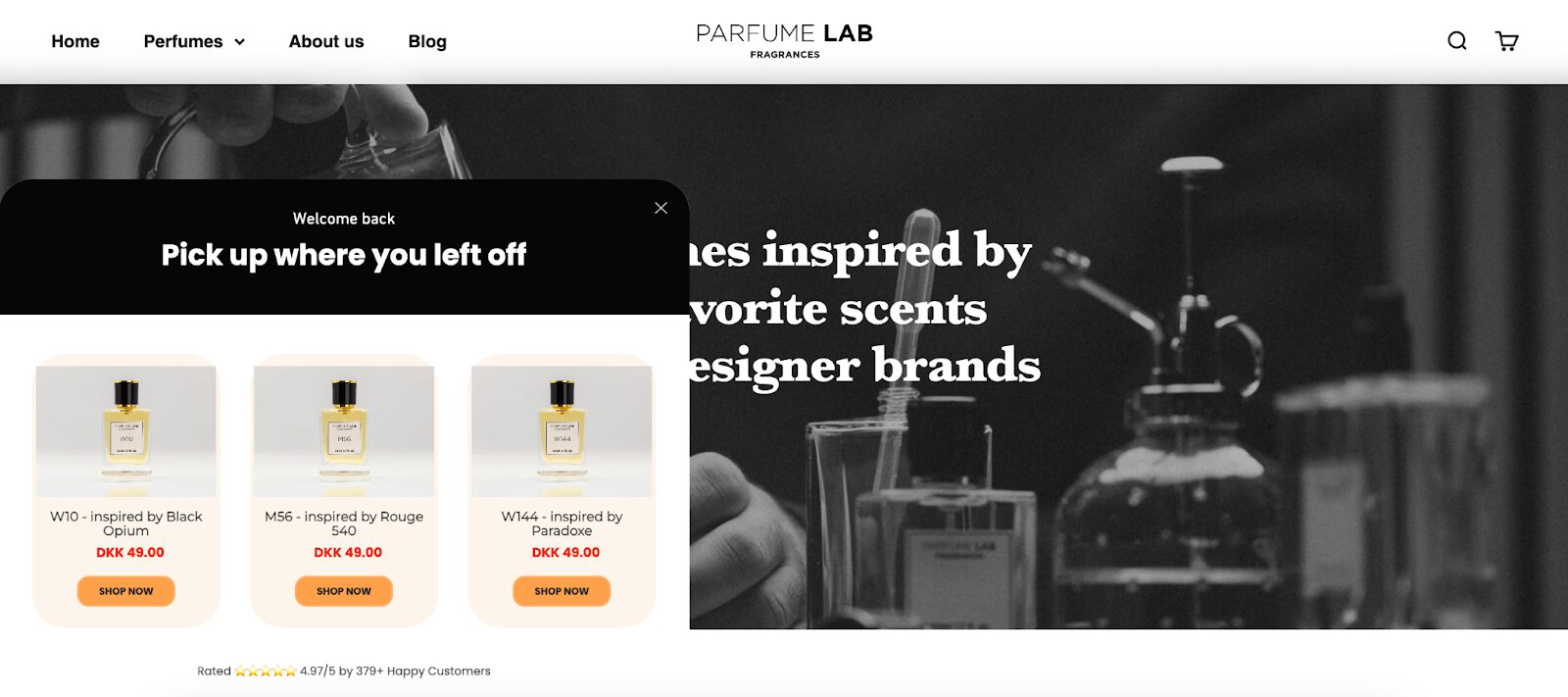
The results were remarkable: 19.22% of returning visitors who saw the reminder ended up making a purchase.
This example demonstrates how small, thoughtful personalization efforts can create significant improvements in user engagement and sales.
5. Millie n Me increased revenue by 5.65% with personalized recommendations
Millie n Me, a trendy online boutique, transformed its customer experience with OptiMonk’s Smart Recommender Popup. This AI-powered solution created a highly personalized customer journey, making each visitor feel seen and understood.
The Smart Recommender Popup analyzed browsing behavior and preferences in real time, automatically suggesting products tailored to each visitor. This meant that every recommendation was directly relevant, enhancing the likelihood of engagement and purchase.
The popup featured dynamic headlines and customized product suggestions based on what visitors were exploring.
For example, shoppers browsing maxi dresses were shown other popular maxi dresses:
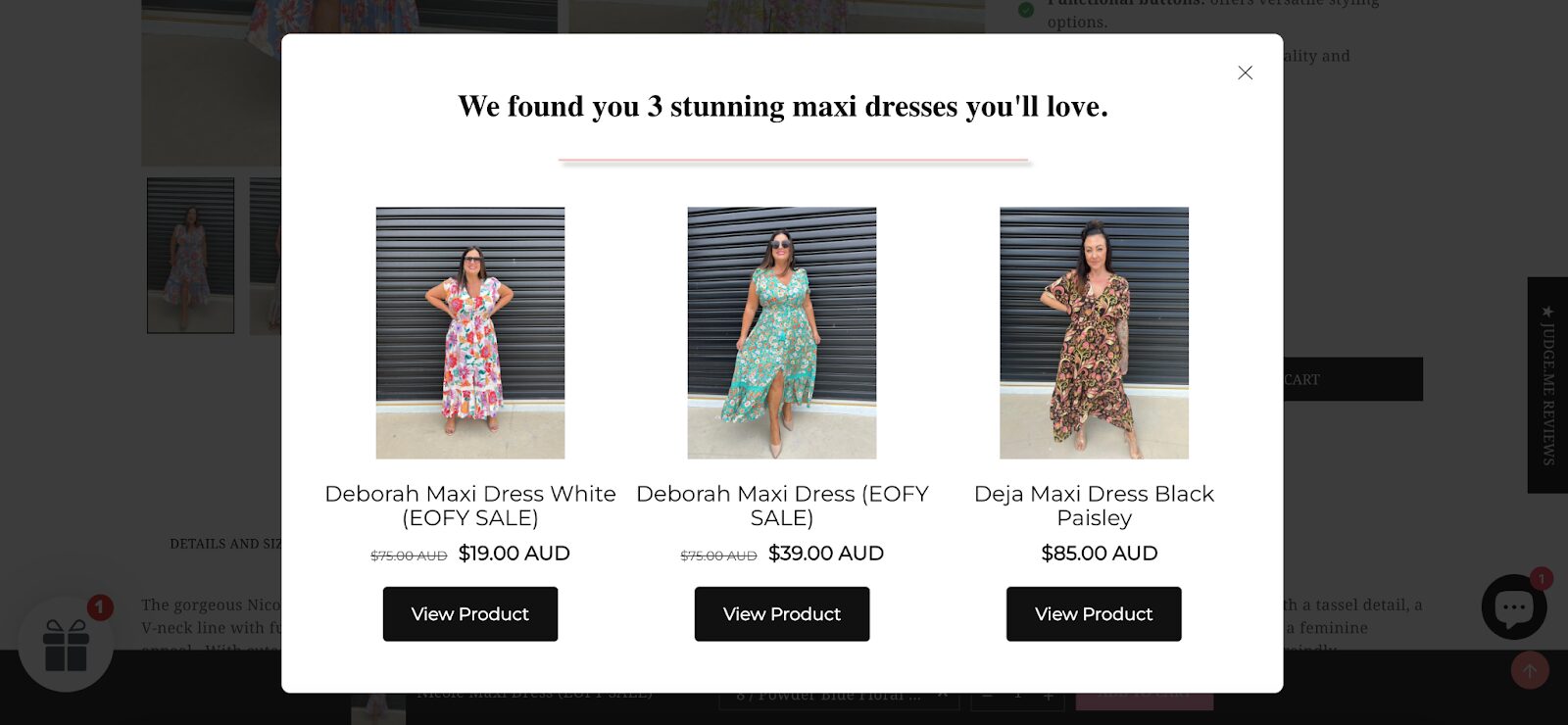
By presenting these suggestions in an engaging and non-intrusive format, the popup achieved impressive results.
It boasted a 10.25% click-through rate. And these clicks directly contributed to a 5.65% increase in revenue and a 15.72% boost in ecommerce conversion rates.
FAQ
How do you measure the success of personalization?
The success of personalization efforts can be measured using key performance indicators (KPIs) that reflect both customer engagement and business outcomes. These include:
- Conversion rates: The percentage of visitors who complete a desired action, such as making a purchase.
- Click-through rates (CTR): How often users interact with personalized elements like product recommendations or targeted popups.
- Average order value (AOV): The average amount spent per order, which often increases with effective personalization.
- Customer retention rates: The percentage of customers who make repeat purchases.
- Customer satisfaction scores (CSAT): Direct feedback from customers about their experience with your site.
- Revenue impact: Total revenue changes attributed to personalized campaigns or strategies.
What are some common personalization tactics for ecommerce?
Some effective personalization tactics include:
- Personalized product recommendations: Suggesting products based on browsing behavior or purchase history.
- Dynamic website content: Displaying content tailored to visitor preferences, such as showing region-specific offers.
- Targeted email campaigns: Sending emails with individualized subject lines, product suggestions, or discounts.
- Behavior-based popups: Using exit-intent or cart abandonment popups that offer personalized discounts or messages.
- Browsing reminders: Helping returning visitors pick up where they left off with reminders of previously viewed items.
Is personalization suitable for small businesses?
Absolutely! Personalization isn’t just for large enterprises. Small businesses can leverage affordable tools like OptiMonk to create meaningful, personalized customer experiences. Starting with simple strategies like dynamic popups can have a significant impact.
Wrapping up
By implementing personalization strategies, ecommerce stores have the potential to achieve jaw-dropping results.
The case studies we’ve explored in this article demonstrate the power of personalization for increasing conversions, improving customer experiences, and driving revenue growth.
To take it a step further, consider adopting hyper-personalization techniques. By using detailed customer data, you can create highly targeted and individualized content that enhances user experience and engagement.
Now it’s up to you to take action and apply these insights to your business. Where do you start? Simple: start by creating a free OptiMonk account, and then experiment with personalized messaging and offers that speak to their unique needs!
Migration has never been easier
We made switching a no-brainer with our free, white-glove onboarding service so you can get started in the blink of an eye.
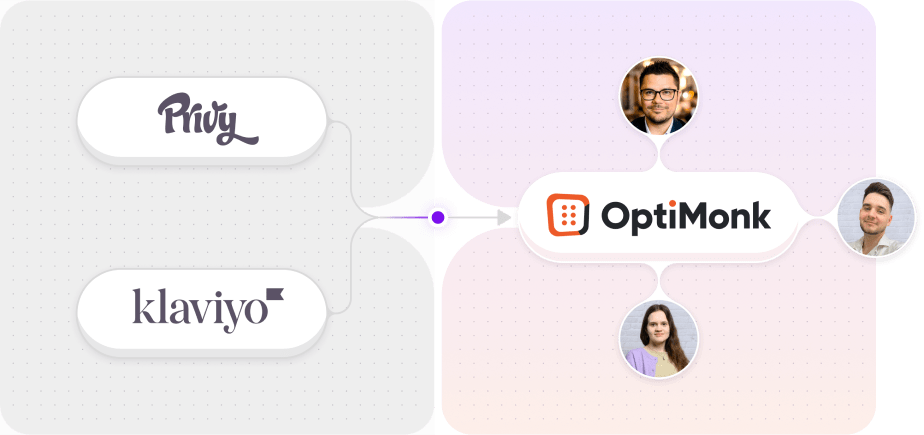
What should you do next?
Thanks for reading till the end. Here are 4 ways we can help you grow your business:
Boost conversions with proven use cases
Explore our Use Case Library, filled with actionable personalization examples and step-by-step guides to unlock your website's full potential. Check out Use Case Library
Create a free OptiMonk account
Create a free OptiMonk account and easily get started with popups and conversion rate optimization. Get OptiMonk free
Get advice from a CRO expert
Schedule a personalized discovery call with one of our experts to explore how OptiMonk can help you grow your business. Book a demo
Join our weekly newsletter
Real CRO insights & marketing tips. No fluff. Straight to your inbox. Subscribe now
Nikolett Lorincz
- Posted in
- Personalization
Partner with us
- © OptiMonk. All rights reserved!
- Terms of Use
- Privacy Policy
- Cookie Policy
